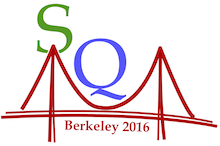Speaker
Long-Gang Pang
(Frankfurt Institute for Advanced Studies, Goethe University)
Description
Relativistic hydrodynamics is very successful at describing the dynamical evolution of heavy ion reactions and the quark gluon plasma. In this work the vorticity resulting from fluctuating initial conditions is studied in viscous hydrodynamics. For this purpose, we decompose the fluid velocity vector into curl-free and divergence-free components and find that the evolution consists not only of curl-free expansion but also of collective rotational motion which is called local vorticity. This local vorticity leads to polarization of baryons and vector mesons which can be measured at RHIC and LHC. In principle the averaged vorticity is not significant, since the local vorticity caused by random fluctuations does not have a preferred direction. However, the y-component of the vorticity vector couples to the global orbital angular momentum in non-central heavy ion collisions, which gives rise to non-vanishing Lambda polarization. We calculate the Lambda polarization on the freeze out hyper-surface using event-by-event (3+1)D viscous hydrodynamics, and observed clear azimuthal angle and rapidity dependence. The polarization is very sensitive to the shear viscosity, therefore can be used to constrain transport properties of the sQGP.
| On behalf of collaboration: | None |
|---|
Primary author
Long-Gang Pang
(Frankfurt Institute for Advanced Studies, Goethe University)
Co-authors
Hannah Petersen
Qun Wang
(University of Science and Technology of China)
Xin-Nian Wang
(Lawrence Berkeley National Lab. (US))
